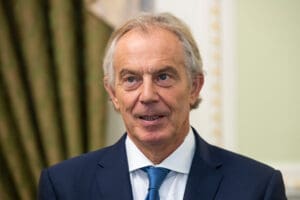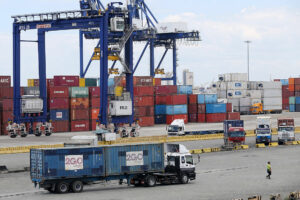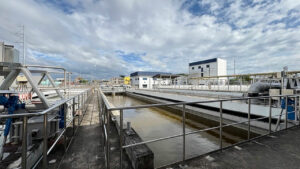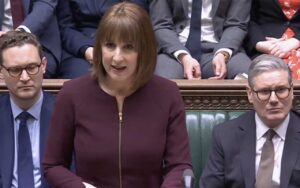By Katherine K. Chan
THE Philippines’ budget deficit narrowed in September, the Bureau of the Treasury (BTr) said on Thursday, as corruption probes into flood control projects slowed government spending.
The fiscal gap shrank 9.22% year on year to P248.1 billion, while month on month, it nearly tripled from August’s P84.8-billion shortfall. Total government spending dropped 7.53% to P529.8 billion from a year earlier, reflecting a slowdown in project implementation.
Primary expenditures — total spending minus interest payments — fell 10.22% to P448.1 billion, while interest payments rose 10.63% to P81.7 billion.
Revenue collection also weakened, slipping 5.99% to P281.7 billion as nontax revenues plunged by almost two-thirds. Treasury profits fell 21.73% to P7.8 billion, while income from other offices dropped 77.82% to P8 billion.
Tax revenues provided some relief, increasing 4.91% year on year to P265.9 billion. The Bureau of Internal Revenue (BIR) collected P183 billion, up 4.74%, while Bureau of Customs (BoC) receipts rose 5.25% to P80.3 billion.
The primary deficit, which excludes interest payments, narrowed by 15.67% to P166.4 billion.
The narrower gap likely reflected delayed public disbursements “especially in infrastructure amid ongoing investigations in flood control spending,” John Paolo R. Rivera, a senior research fellow at the Philippine Institute for Development Studies, said in a Viber message.
From January to September, the budget deficit widened 15.15% year on year to P1.117 trillion, or 71.6% of the government’s P1.56-trillion full-year target. Expenditures rose 5.18% to P4.484 trillion — about 73.7% of the P6.082-trillion spending program.
Primary spending during the period increased 3.76% to P3.818 trillion, while interest payments jumped 14.15% to P665.8 billion.
Revenues climbed 2.24% to P3.367 trillion, equivalent to 74.49% of the P4.52-trillion goal. Tax collections grew 8.56% to P3.053 trillion, while nontax revenues fell 34.71% to P314.1 billion.
The BIR collected P2.323 trillion, up 10.88%, and Customs’ take rose 1.59% to P701.7 billion. The Treasury attributed stronger tax performance to higher corporate and personal income taxes, as well as gains in value-added, tobacco and bank taxes.
Despite the decline, nontax revenues already exceeded their full-year goal, supported by dividends from state companies and income from gaming and airport operations.
As of September, the primary deficit had widened 16.66% to P451.4 billion.
Michael L. Ricafort, chief economist at Rizal Commercial Banking Corp., said spending could remain subdued amid heightened scrutiny of government contracts.
“There is a risk of slower government spending in the coming months amid anti-corruption measures that could slow down economic growth,” he said in a Viber message.
Mr. Rivera said the sustainability of a narrower deficit remained uncertain. “While slower spending might temporarily improve the numbers, it is not a substitute for revenue growth or healthy public investment,” he added.
BMI, a unit of Fitch Solutions, expects the Philippines’ budget deficit to slightly narrow this year as spending remains constrained by election-related restrictions and weak infrastructure disbursements.
It projects the fiscal deficit to reach 5.5% of gross domestic product (GDP), matching the ceiling set by the Development Budget Coordination Committee (DBCC). That would be a modest improvement from last year’s 5.7%.
“We forecast a narrower Philippine fiscal deficit of 5.5% for 2025 as spending has lagged programmed expenditures in the fiscal program,” BMI said in an Oct. 22 note.
Government revenue collection as of August had exceeded monthly targets, but spending continued to trail expectations due to curbs on pre-election disbursements and slower rollout of infrastructure projects.
Budget Secretary Amenah F. Pangandaman earlier warned that infrastructure spending could decelerate as the Department of Public Works and Highways faces investigation over irregularities in flood control projects.
BMI expects the fiscal gap to narrow further to 5.4% next year, helped by one-off privatization proceeds and new trade agreements with the US. Still, the estimate is slightly above the DBCC’s 5.3% target.
The report noted that tariff concessions under the US-Philippine trade deal could reduce government revenue by as much as P30 billion, after Manila agreed to eliminate duties on select American exports such as vehicles, pharmaceuticals and soybeans.
Customs Commissioner Ariel F. Nepomuceno earlier said the government could lose P27 billion to P30 billion in revenue this year due to the zero-tariff policy.
BMI added that the proposed P6.793-trillion budget for 2026 could strain fiscal consolidation efforts, as plans to expand the tax base remain limited.
The government aims to keep the deficit at P1.56 trillion this year and gradually bring it down to P1.55 trillion, or 4.3% of GDP, by 2028.

















